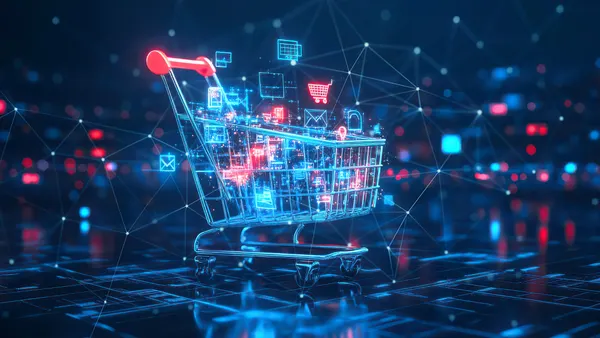Dive Brief:
-
7-Eleven has launched mobile checkout in New York City stores, the convenience chain announced on last week. Customers who use the 7-Eleven app and accompanying 7Rewards loyalty program can skip the checkout counter and pay for their purchases via the app.
-
Mobile checkout is integrated into the chain's loyalty program, allowing users to earn and redeem rewards when they use the new feature. Mobile checkout works for "most 7-Eleven merchandise that has a bar code," the company release notes, with financial services and age-verified purchases requiring cashier assistance.
-
The 7-Eleven app is available on iOS and Android, and mobile checkout users can pay with debit, credit, Apple Pay or Google Pay. 7-Eleven rolled out Apple Pay and Google Pay to U.S. stores less than a year ago.
Dive Insight:
7-Eleven's announcement touts its status as the first convenience store chain to develop its own "full frictionless payment experience." While it may not be the most technologically advanced method of entering the smart store space, its strategy of launching in bustling New York City may serve it well in its early stages. The company piloted the program in a few Dallas locations last year.
Unlike Amazon Go stores and Brazil's Ame Go locations that use sensors and cameras to identify customer selections after they scan their app to enter, 7-Eleven's app requires the customer to scan product barcodes, pay, then scan a QR code at a confirmation station as they leave. It may seem less sophisticated, but it provides more flexibility for 7-Eleven to get into the self-serve space early. Amazon and Ame Go (the latter powered by San Francisco-based Zippin) both have small stores with inventory built around the cashier-less technology. Meanwhile, 7-Eleven makes it work with the barcodes that are already on its products and a fraction more effort from customers.
The mobile checkout announcement contributes to 7-Eleven's recent push to be recognized for far more than Slurpees in the c-store space. The 7NOW delivery app, launched in 2017, recently added the ability for customers to get their food, beverages and other products delivered to predetermined public places. The company is also testing a store format featuring beer on tap, a coffee bar, upscale products and a taqueria.












